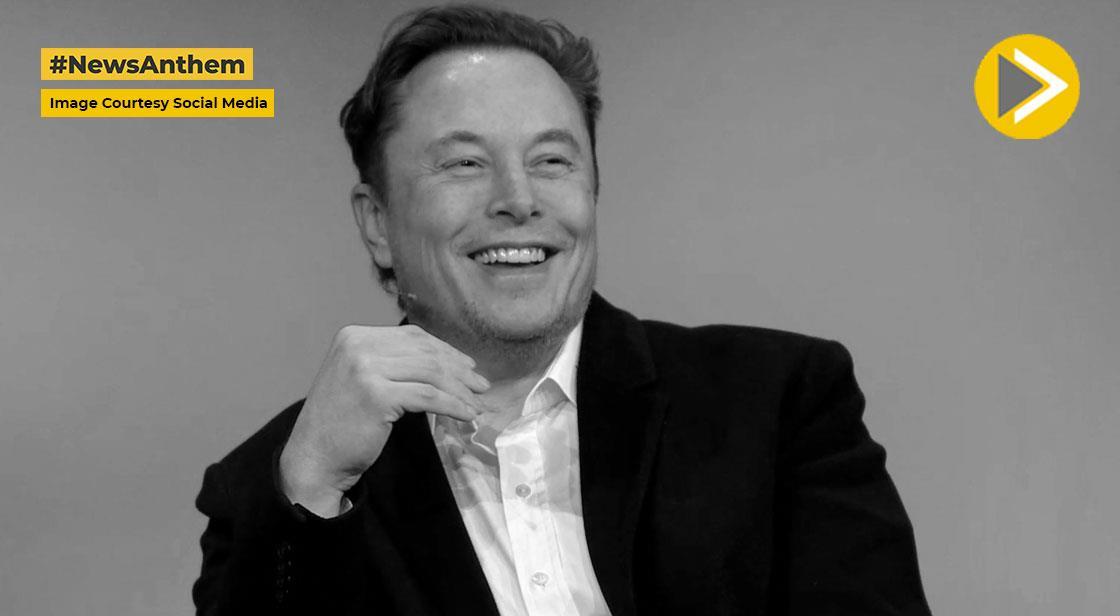Elon Musk Urges Donald Trump to Roll Back New Tariffs, Criticizes Trade Advisers

News Synopsis
Elon Musk, CEO of Tesla and SpaceX, and also the head of the Department of Government Efficiency (DOGE), has reportedly appealed to US President Donald Trump to reconsider the newly introduced tariff hikes. These new trade restrictions have stirred instability across global markets, but Musk's appeal has so far not swayed Trump's stance, according to a recent report.
Musk Takes to Social Media, Slams Peter Navarro
Elon Musk didn’t hold back his frustration, taking to X (formerly Twitter) to publicly call out Peter Navarro, Trump’s trade adviser and one of the chief architects behind the new tariff policies. In a scathing post, Musk wrote, “A PhD in economics from Harvard is a bad thing, not a good thing,” adding that such academic accolades often lead to an “ego problem.”
Trump Announces Potential Tariff Hikes on China
According to media reports, US President Donald Trump is considering increasing tariffs on Chinese imports from 34% to 50%. These proposed hikes have prompted sharp criticism from industry leaders, economists, and now, one of the world’s most influential tech entrepreneurs.
Musk Champions Free Trade, Shares Milton Friedman Video
In support of his argument, Musk shared a video featuring late Nobel laureate economist Milton Friedman, explaining the economic benefits of free trade. The video uses the simple example of pencil production to highlight how international cooperation enriches global trade.
Musk Advocates for a Zero-Tariff Transatlantic Trade Zone
“At the end of the day, I hope it’s agreed that both Europe and the United States should move ideally, in my view, to a zero-tariff situation. Effectively creating a free-trade zone between Europe and North America,” Musk said.
He further added, “If people wish to work in Europe or wish to work in North America, they should be allowed to do so in my view. This has certainly been my advice to the president.”
A History of Opposition to Tariff Policies
This is not Musk's first instance of opposing trade restrictions. During Trump's first term, Musk had filed a lawsuit challenging the tariff on Tesla imports from China, emphasizing the importance of both China and the US in Tesla's global supply chain and sales strategy.
Kimbal Musk Also Speaks Out
Kimbal Musk, Elon’s brother and fellow Tesla board member, has also voiced his disapproval of Trump's tariff strategy. “Who would have thought that Trump was actually the most high-tax American President in generations,” Kimbal wrote on X. He added, “Through his tariff strategy, Trump has implemented a structural, permanent tax on the American consumer.”
In response to Trump’s recent social media post highlighting China’s retaliatory tariff hike of 34%, Kimbal wrote, “…Celebrating China’s stock market going down, by causing our own stock market to go down? Maybe this is why Trump brought back the R word.”
White House Responds: Trump Has Final Say
White House Press Secretary Karoline Leavitt addressed the ongoing criticisms, stating, “The President has put together a remarkable team of highly talented and experienced individuals who bring different ideas to the table, knowing that President Trump is the ultimate decision maker.”
She added, “When he makes a decision, everyone rows in the same direction to execute. That’s why this Administration has done more in two months than the previous Admin did in four years.”
Conclusion
Elon Musk’s recent intervention against Trump’s proposed tariff hikes underscores the growing tension between business leaders and political policymakers in today’s volatile global trade environment. By advocating for free trade and criticizing key members of Trump’s trade team, Musk reaffirms his long-standing stance that tariffs hurt not just producers but consumers.
His push for a zero-tariff transatlantic trade zone and freer labor movement reflects a broader vision of economic collaboration that transcends borders. Despite his influence and widespread public support on social media, Musk's efforts have yet to affect policy direction, as the Trump administration holds firm.
Kimbal Musk’s pointed critiques further emphasize the growing discontent among entrepreneurs who believe that current trade measures may backfire economically. As global markets respond to these escalating trade tensions, the conversation around free trade, protectionism, and economic strategy remains more relevant than ever—with industry giants like Musk continuing to lead the charge for change.
You May Like









